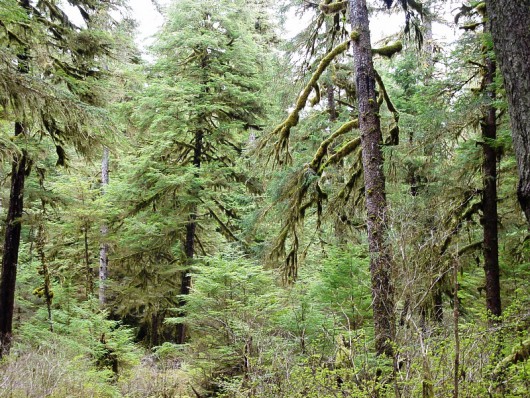 The Trump administration announced this week it is planning to impose a tariff of up to 24 percent on softwood lumber imported to the U.S. from Canada. It’s uncertain what this will mean for the timber industry in Southeast Alaska.
The Trump administration announced this week it is planning to impose a tariff of up to 24 percent on softwood lumber imported to the U.S. from Canada. It’s uncertain what this will mean for the timber industry in Southeast Alaska.
Ketchikan-based Alcan Forest Products has operations in the United States and Canada. Partner Brian Brown says the tariff will raise the price of lumber. While he says it will likely be a net positive for his business, he does not support the tax.
“I think the net result of this duty is bad. It’s bad for consumers. People are going to pay more for lumber, period. There’s no doubt in my mind on that. That’s a fact.”
In addition, Brown says it will be bad for businesses.
“If you’re a producer, particularly in Canada, how do you run a business? All of the sudden you have to pay a 20 percent tax. It’s tough to run a business. And Canada, the last time I checked, was an ally of ours. I don’t know. I think it’s fraught with risk.”
Owen Graham, executive director of the Alaska Forest Association, disagrees. He says he thinks the tariff will benefit the Southeast timber industry.
“A portion of our lumber, particularly hemlock, goes to the Lower 48. It would help that lumber. It would take some of the Canadian wood off the market, and that would tend to raise the price up a tiny little bit. So it would be a help to Alaska producers.”
Graham says more than a tariff, he would like to see the U.S. government adopt more business-friendly practices, similar to those in Canada.
“They’re more interested in jobs than they are in some of the other things that come off the forest. They tend to have a larger economy of scale that gives them a huge advantage over our sawmills. And they allow the mills to manage some of the land for them, and so the mills can get additional savings that way.”
According to a U.S. Commerce Department report, Canadian exports of softwood lumber to the United States in 2016 were valued at $5.6 billion.





